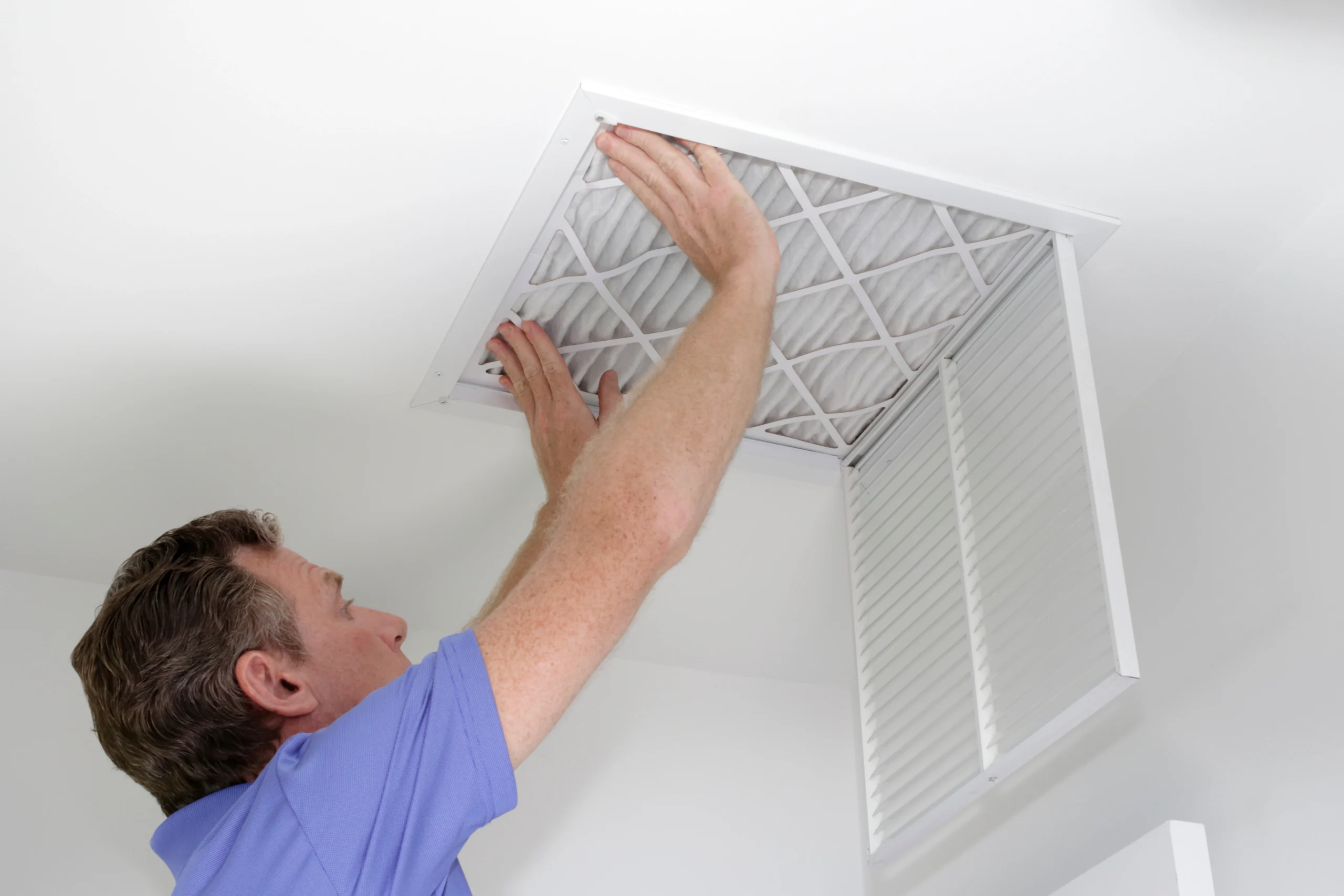Are Pleated Filters Too Restrictive?
The purpose of an HVAC filter is to trap air particles and remove them from the air that circulates through your home. As a result, filters improve indoor air quality, which is good for your health and your HVAC system.
However, a filter that is effective at filtering out particles can also restrict airflow due to the density of the filter material. Restricted airflow is hard on your HVAC system because it has to work harder to circulate the air. Increased strain can lead to equipment overheating, reduced efficiency, higher energy bills, and premature system failure.
Below, we look at pleated air conditioner filter replacements. Do pleated filters restrict airflow? Are pleated filters better than non-pleated air filters? Finally, how do pleated filters affect your HVAC system? We answer these questions and more below.
What Is Air Restriction and What Causes It?
Before deep diving into pleated air filters, let’s explore some common concerns about air restriction and factors affecting airflow restriction.
What Do We Mean by Air Restriction?
Air restriction refers to how much an air filter blocks or restricts airflow through an HVAC system. Denser air filters with smaller pores restrict air flow more than less dense filters.
What Are Common Concerns About Air Restriction?
Excessive restriction makes your HVAC system work harder, which leads to higher energy costs. Too much air restriction can also lead to equipment overheating and premature failure. The result is more maintenance, more repairs, and a shorter lifespan.
What Factors Affect Airflow Restriction?
Three factors affect airflow restriction in HVAC filters:
- Filter material density and thickness determine how easily air can pass through the filter media.
- A Higher MERV rating indicates higher efficiency but also suggests higher airflow resistance.
- Dust and debris buildup increases airflow restriction until the filter is replaced.
When comparing pleated filter products, you must consider all of these factors and the type of HVAC system in your home (more about that below).
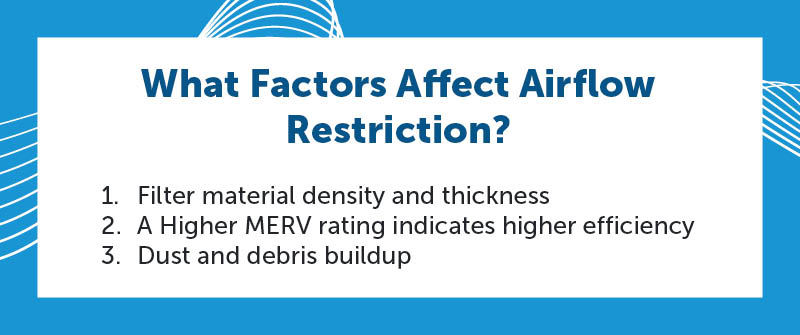
What Are Pleated Air Filters?
A pleated air filter uses an accordion-style folding pattern to condense yet increase its surface area. The design increases the surface area compared to flat, non-pleated filters. Pleated filters contain pliable materials such as polyester, paper, or cotton.
Pleated filters can capture particles down to 0.3 microns. They’re highly effective at trapping dust, pollen, pet dander, mold spores, and bacteria. You can purchase filters with MERV (Minimum Efficiency Reporting Value) ratings of five to 13. Fiberglass filters have a MERV rating of one to four.
You can expect to replace or clean a pleated filter every 60 to 90 days. A replacement may cost more than other types of filters. However, the tradeoff is a high-efficiency filter.
What Are the Benefits of Pleated Air Filters?
Pleated filters have several advantages that stand out from other filters:
- More air filtration area: a pleated filter has a larger surface area than non-pleated filters of the same size.
- Higher MERV ratings: The dense pleated material has higher MERV ratings, ranging from five to 13. It traps mold spores, pet dander, smoke, and some bacteria.
- Longer lifespan: The pleated material can withstand high air pressure and more buildup without tearing.
- Better HVAC protection: Pleated filters capture more particulates, reducing dust buildup on coils and blowers, resulting in less cleaning and maintenance.
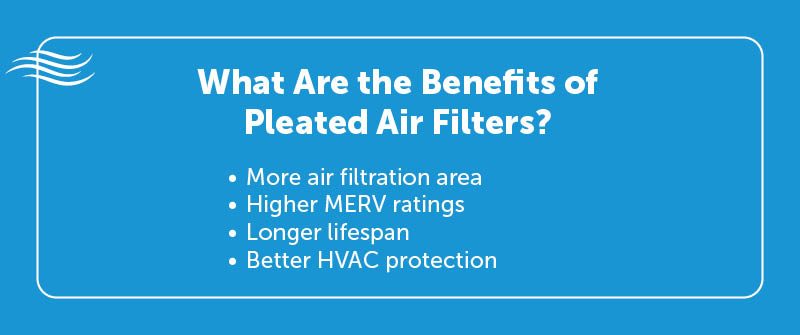
Do Pleated Air Filters Restrict Airflow in Your HVAC?
The answer is yes and no. Let’s explain.
Compared to other filters, such as fiberglass filters, pleated filters can restrict more air. The table below compares the airflow and MERV ratings of five different types of air filters:
| Typical MERV Range | Airflow Restriction | |
| Pleated | 5 – 13 | Moderate to High |
| Fiberglass | 1 – 4 | Low |
| Washable/Reusable | 1 – 4 | Low to Moderate |
| Electrostatic | 5 – 16 | Moderate |
| HEPA | 17 – 20 | Very High |
By design, a pleated 20x20x1 air filter should offer better airflow characteristics than a flat panel filter, where homeowners face problems when the filters are not changed at the end of their service life.
Moderate airflow restriction is expected and not necessarily bad if the pleated filter is properly sized for your HVAC system. You need to consider two main things:
- Proper filter sizing for the return air duct/grille: Pleated filters with higher MERV ratings above 8-10 can restrict airflow more than basic fiberglass filters if not changed at recommended intervals. If the return air duct or grille is undersized, the increased airflow resistance from any filter could strain the system.
- Blower fan/motor capabilities: A system with a larger blower fan and motor can handle the airflow resistance of pleated filters without excessive strain. Undersized blowers may struggle with dense pleated filters.
Select a pleated filter rated for your HVAC’s capabilities. An undersized system may struggle with a dense pleated filter. A properly matched pleated filter can provide superior air filtration without hurting the equipment.
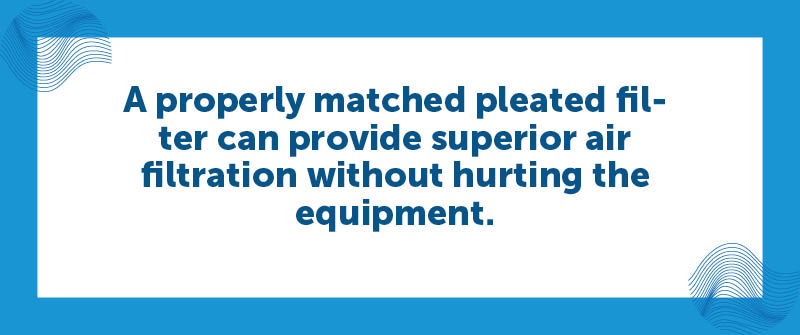
What is the Difference Between Pleated vs. Non Pleated Air Filters?
With all the features and advantages of pleated air filters, they have a few drawbacks. The biggest drawback is that a pleated filter may not be compatible with your heating or cooling system. This is where non-pleated filters may be a better option. Are pleated air filters better than non-pleated ones? Let’s do a quick comparison:
| Pleated Air Filters | Non-Pleated Air Filters | |
| MERV Ratings | Typically, 5- 13, higher particle capture | Typically, 1-4 only captures larger particles |
| Particle Removal | It can capture particles down to 0.3 microns, like allergens, smoke, bacteria | Only captures larger particles like dust, lint, pollen |
| Airflow Resistance | Moderate to high airflow resistance due to denser material | Low airflow resistance due to loose fibrous material |
| Filter Lifespan | 60-90 days before replacement is needed | 30 days before replacement is needed |
| Upfront Cost | Higher upfront cost | Lower upfront cost |
| Long-Term Cost | More cost-effective long-term due to extended lifespan | Higher long-term cost due to frequent replacements |
Do Pleated Filters Make Your Furnace Work Harder?
As mentioned earlier, when buying a 16x25x1 air filter, match the appropriate design for your furnace brand, type, and model. Consider the overall impact on your furnace’s performance, longevity, energy consumption, and maintenance.
What Furnace Filters Do Not Restrict Airflow?
Basic fiberglass furnace filters are some of the best non-pleated air filters. These thin, flat filters have a loose weave that allows air to flow easily. However, fiberglass filters cannot capture small particles like pleated filters can. So, find a pleated filter with a lower MERV rating between five and 11.
Considerations for Size and Compatibility
When choosing pleated furnace air filters, match the filter size to your system. Measure the filter slot carefully so that the filter slides in perfectly. Also, check your furnace’s specifications to ensure the pleated filter does not excessively restrict airflow. Go with popular brands and models that have strong customer reviews and ratings.
Final Tips to Optimize Furnace Efficiency with Different Filters
Whether you have pleated or non-pleated air filters, replace them regularly before they get too clogged. Use the highest MERV rating filter your furnace can handle without restricting airflow. If you have a washable filter, avoid using cleaning chemicals that may clog the material.
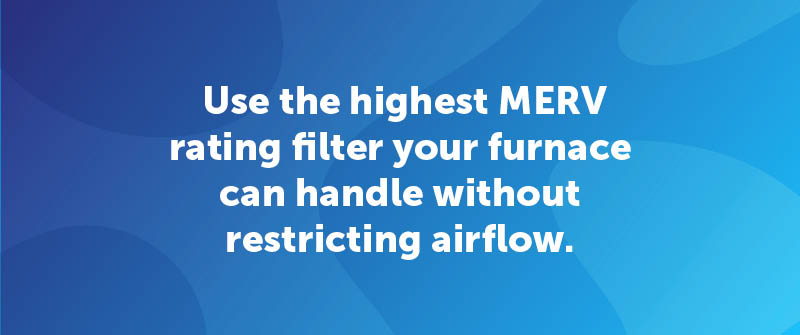
Order High-Quality Pleated Filters From Discount Filters
At Discount Filters, we help homeowners create a cleaner, healthier home environment with pleated and non-pleated filters from today’s top brands. Shop our online store to find the perfect filter for your home. Wondering which MERV air filter you should use? Contact one of our filter experts via live chat or our toll-free number!

